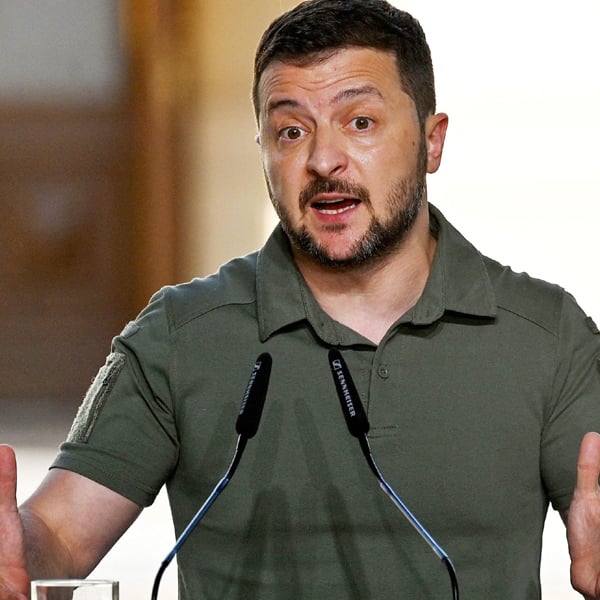In an unabated display of unwavering fortitude, the United States and Germany stand firm, refusing to succumb to the mounting pressures exerted upon them to propel Ukraine’s long-standing endeavor to secure NATO membership. The resolute nations, unwavering in their position, are unyielding to the pleas of various stakeholders, defying the expectations of the international community.
The escalating discord surrounding Ukraine’s quest for NATO accession has reached a crescendo, as influential voices from within and beyond the European theater beseech the United States and Germany to abandon their cautious approach and expedite Ukraine’s integration into the North Atlantic Treaty Organization. However, rather than acquiescing to this fervent clamor, both nations maintain their steadfast resistance, unswayed by the burgeoning chorus of proponents.
At the heart of this contentious issue lies the intricate web of geopolitical dynamics, strategic imperatives, and historical precedents. The United States, as a primary power within NATO, recognizes the importance of maintaining a balanced and measured approach in order to safeguard the delicate equilibrium in the region. Moreover, their discerning approach considers the implications of Ukraine’s inclusion on the geopolitical landscape, acknowledging the potential ramifications on Russia, a key player in the region’s intricate power dynamics.
Read: Rihanna is a multi-platinum-selling singer, actress, fashion designer, and businesswoman
Germany, long revered for its meticulous diplomacy and judicious decision-making, echoes the sentiments of its transatlantic ally. As a stalwart member of the European Union and an influential voice within NATO, Germany remains cognizant of the inherent complexities surrounding Ukraine’s bid. By holding steadfast to their position, Germany endeavors to preserve the stability of the European continent and maintain open channels of communication with Russia, whose cooperation is indispensable for the resolution of various pressing global issues.
Fearful Germany preparing to block Ukraine’s Nato membership bid
byu/rvps2001 inRussiaUkraineBriefing
While critics argue that the refusal to accelerate Ukraine’s NATO aspirations signals a waning commitment to collective security and the promotion of democratic values, the United States and Germany assert that prudence and careful evaluation must guide their approach. The astute policymakers in both nations are mindful of the multifaceted challenges that may arise from hastily embracing Ukraine as a NATO member, including the potential for an escalating confrontation with Russia and the subsequent destabilization of the region.
Moreover, the process of NATO accession entails rigorous criteria and painstaking evaluations to ensure that prospective members can genuinely contribute to the collective defense capabilities of the alliance. The United States and Germany, cognizant of these criteria, insist on thorough scrutiny and meticulous consideration of Ukraine’s preparedness before any decisions can be made. Their approach emphasizes the need for a measured and deliberate evaluation of Ukraine’s military capabilities, institutional robustness, and adherence to democratic principles.
As Ukraine’s NATO bid remains in a state of limbo, the United States and Germany’s unwavering opposition signals a cautious approach, rooted in strategic prudence and long-term stability. Their resolve to resist external pressures serves as a testament to their commitment to safeguarding the delicate geopolitical balance while ensuring the effectiveness and coherence of the NATO alliance.
In the intricate tapestry of international relations, the refusal of the United States and Germany to capitulate to mounting pressure reflects the complexity of global politics. As the world looks on with anticipation, the steadfastness of these two influential nations underscores the need for thoughtful deliberation, informed decision-making, and an unwavering commitment to the preservation of peace and stability in the European theater.


